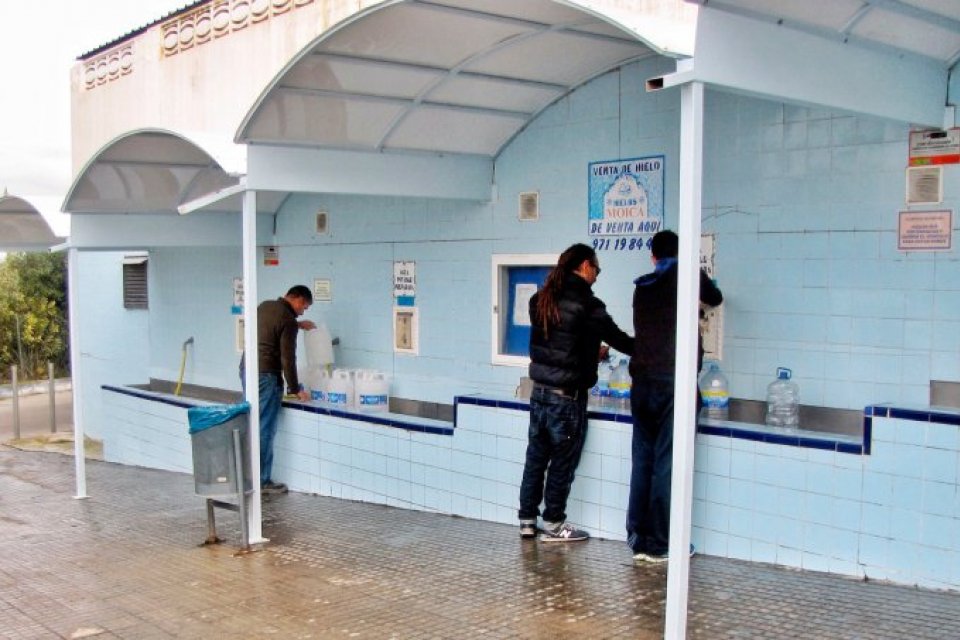
A common question which baffles visitors and residents of Ibiza, is ‘Is the water in Ibiza safe to drink?'
The purpose of this article is to dispel local myths, allay your fears and reveal the truth about the current water situation. This is based on data from the Directorate General of Water Resources (2015).
Senior Geologists from the Universidad de Baleares, Bernadí Gelabert and Antonio Rodríguez Perea, collected data on the water quality in Ibiza and presented their findings ‘Analysis of Water Management in Ibiza' in March 2015.
Here are the 10 most important things you need to know:
1. Yes the water is 'safe' to drink in the short term – but it may taste terrible. It may have chlorine in it, to kill bacteria and in some areas, it will have extremely high levels of salt or calcium, so it's not great to use it long term if you are a resident. Too much salt can cause heart problems and too much calcium can cause kidney problems. It is very unlikely this will be a problem if you're visiting on holiday.
2. There are two main sources of water: rainwater and seawater that has had the salt taken out of it at one of the three desalination plants in Ibiza.
3. When it rains, the water seeps down into underground lakes, called aquifers. The island of Ibiza has been divided into 16 regions and the water issues are different in each region.
4. The good news is that the water in the underground lakes doesn't contain soil contaminants (such as pesticides from farms). The bad news is that it is very high in calcium because Ibiza is made up of limestone. That's why you get 'lime scale' build up in kettles and other appliances. Limescale is calcium.
5. Boiling water doesn't get rid of calcium. Small amounts of calcium are okay, so the tap water generally is safe for boiling vegetables, making pasta etc - though some people may prefer to use bottled water. It's fine for brushing teeth, showering and washing clothes etc. If you live in Ibiza you might want to consider buying a filtration system.
6. You don't need to worry about food and drinks prepared in hotels and restaurants. Ice cubes, for example, are usually brought in if the water is not considered safe or palatable.
7. Some people have wells in their house or garden that tap into the underground lakes directly. Or they may buy water from a neighbour with a well. In some areas, companies like Aqualia supply tap water via the main pipe network. And if these options aren't available, then water is stored in large tanks and delivered by trucks several times a year.
8. Ibiza is blessed with beautiful weather. The downside is that it doesn't rain much over spring and summer. When the underground lakes get low, seawater can seep in. Once this happens, there is no going back!
For example, the drinking water in Playa d'en Bossa is especially salty, because its underground lake at Serra Grossa has been “polluted” by seawater.
9. Buying bottled water is costly, but for most people visiting Ibiza, it is the easiest option. A cheap – and most environmentally friendly way to buy water is to purchase large 8 litre flasks and pour them into smaller bottles. Choose your bottles carefully. Some plastics have been linked to causing cancer so it's best to buy a tin or glass bottle (from a camping store or fitness shop) and keep refilling it. This is good practice when you get home too – not just in Ibiza. If you have to buy plastic bottles, make sure you recycle them.
10. The cheapest option is to go to an ‘agua-potable' site where you can fill up your own water containers for approximately 1 euro for 50 litres. This is treated water from the underground lakes.
You can find these filling stations for example behind the petrol station in San Rafael (Fuentejara, Google Maps Ref.), on the main road from Ibiza Town to Santa Eulalia (Pozo Can Guasch, Google Map Ref.) and in San José (Google Map Ref.).
Ibiza is running out of water. It's not a fun topic and not really what you want to have to think about when you're on holiday. But if everyone is considerate about how much water we use, then the island's beauty will be preserved.
For tips on saving water, go ahead and check out our page on the subject.
WORDS | Katherine Berry
